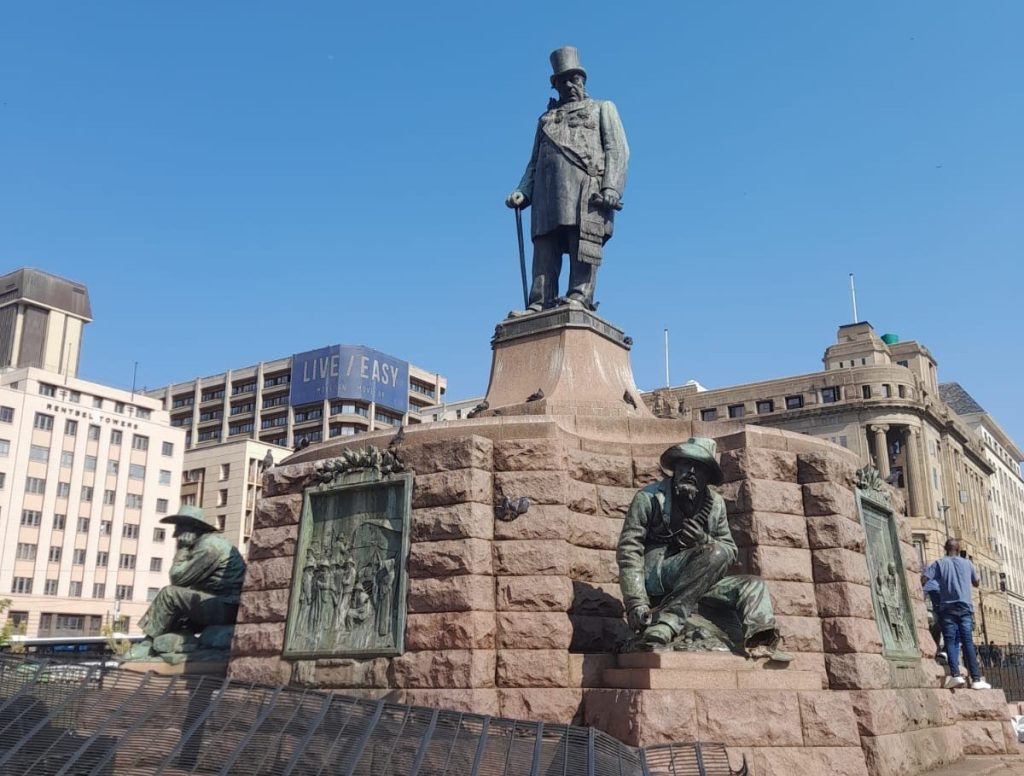Alana Bailey, Head: Cultural Affairs, AfriForum
At the beginning of the 21st century, it was predicted that borders would disappear. In fact, in Europe you could already travel widely with the service provider changing on your cell phone screen, or the GPS information as the only indication that you were now in a different country than ten minutes ago.
Friends of mine declared: “Except for the longer flights, there is no difference between visiting children in Cape Town or Hamburg.”
And then came Covid-19 and suddenly borders appeared once again. In fact, not just borders, but often relentlessly closed borders of countries in lockdown.
The only thing we know for certain now, is that the world will never be the same again. However, this week a radio commentator reminded me that this was also what we had said in the days immediately after 9/11. The end of tourism and the aviation industry was predicted, yet travel increased in popularity thereafter. We quickly became accustomed to new requirements regarding liquids in hand luggage and march faithfully through each country’s particular safety requirements at airports. Here you have to take off your shoes, there your jacket, sometimes your glasses, often your wristwatch … None of these measures are questioned and no one is afraid of it anymore.
I will hazard a guess that this will be the case again. New security measures are likely to be implemented at airports in future, but we will still have itchy feet and there will be no stopping us from travelling.
For the past few days at AfriForum we have been inundated with appeals from South Africans who had been traveling, visiting or working abroad and when borders were suddenly closed, were left stranded there. In the worst cases, they were trapped somewhere with very little access to amenities, communication, protection and even food.
As we would like to prevent this from happening, we provide some tips for prospective travellers. Experienced explorers will know all about this and need not read any further. For others, it may help to prevent inconvenience and disillusionment. Having said that, we are in no way suggesting that people who got trapped abroad because of the virus could have prevented it. This pandemic has caught everyone off guard. However, we have to keep in mind that such a phenomenon may happen again in our lifetime and then we have to be prepared.
Herewith the tips:
- Undertake research about your destination. Are there certain times of the year when weather-related phenomena such as hurricanes occur? Is it a danger zone involving natural disasters such as earthquakes or volcanic eruptions (like at Whakaari / White Island in December 2019)? Is it politically stable? What does crime statistics look like? Do any endemic diseases such as malaria occur there? Two sources for reliable information are your nearest travel clinic, and then the Internet. Enter “travel directives” and you will find the latest information provided by countries such as the USA and Great Britain for the benefit of their citizens. Their intelligence services are very thorough and the information usually up to date.
- Get travel insurance and read the policy. At certain ages some health problems are often excluded. Not all activities are necessarily covered, for example, if you go skiing in Switzerland, claims related to your broken leg may be rejected, because the policy in question classifies skiing as a high-risk activity. In areas where people are kidnapped, policies sometimes cover only a few days of negotiation with the criminals or terrorists, while negotiations may take months. Read the options carefully before taking out insurance, but don’t leave home without it.
- Do not rely on the state. In terms of international law, a state is under no obligation to come to the aid of its citizens at all times. Assistance will depend many things. Why were you abroad? Are there any treaties between your country and the country where you are that ensure or prohibit such assistance? Is help practicable? Does your country have the expertise or resources to act at the time when you need help? Calculate the risks before you depart and if you do not feel comfortable, rather do not go.
- Do not rely on other institutions. In an emergency, the captain may sometimes literally desert a sinking ship before the passengers have had the chance to. A government, hotel group, shipping line or airline might sometimes be just as unprepared for a disaster as you, or may simply be lax, or hide behind the fine print under “Terms and Conditions” in your agreement with them. Don’t assume that they are going to help you in case of an emergency and don’t play the blame game if you end up in a sticky situation. Rather use your energy to find the quickest and safest way out of your predicament.
- Do not take parcels with you on behalf of anyone else. Even though you may think that you are 100% sure what is in it, it is even better not to take it at all. Smugglers may often be the people you would least suspect.
- Be honest about your health. If you have a fairly serious heart condition, or diabetes, or any similar condition, consider the risks inherent to travel carefully. Also, keep the anxiety and stress of your loved ones in mind, should you fall ill far from home or become stranded without your chronic medication. You also have to act in their best interests.
- Take extra medication with you. If you are taking any chronic medication, always make sure to take a few days’ extra supplies. Flights may be delayed, or strikes can put a stop to public transport and then you will need extra medicine. Also take your prescription and the medication information leaflets with you. Medicine does not always have the same name all over the world and if a pharmacist has the leaflet, a substitute can be found more easily. Remember, accidents can also happen like medicines spilling, and then you have to get replacements, even though you have taken precautions.
- Crime does not remain behind in South Africa. Stay alert and be prepared! Do not carry a purse in an open handbag or back pocket of your trousers. Keep extra copies of your passport, visa and your bank’s number where you need to report card theft in all your luggage.
- Travellers cannot march on an empty stomach. Always keep something to eat in your hand luggage. Energy bars, chocolates, or good old Marie biscuits are good options. If liquids are not a problem, take water or milk with you.
There are many other tips on how to stay safe abroad, but with the above we focus especially on your planning, departure and return.
Most of us will be at home for quite some time now, therefore this is the perfect time for planning your next trip.
All that remains to be said, is bon voyage!
Share on
Latest articles




















